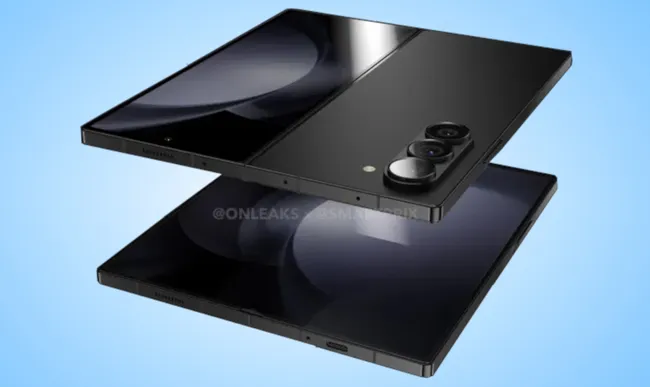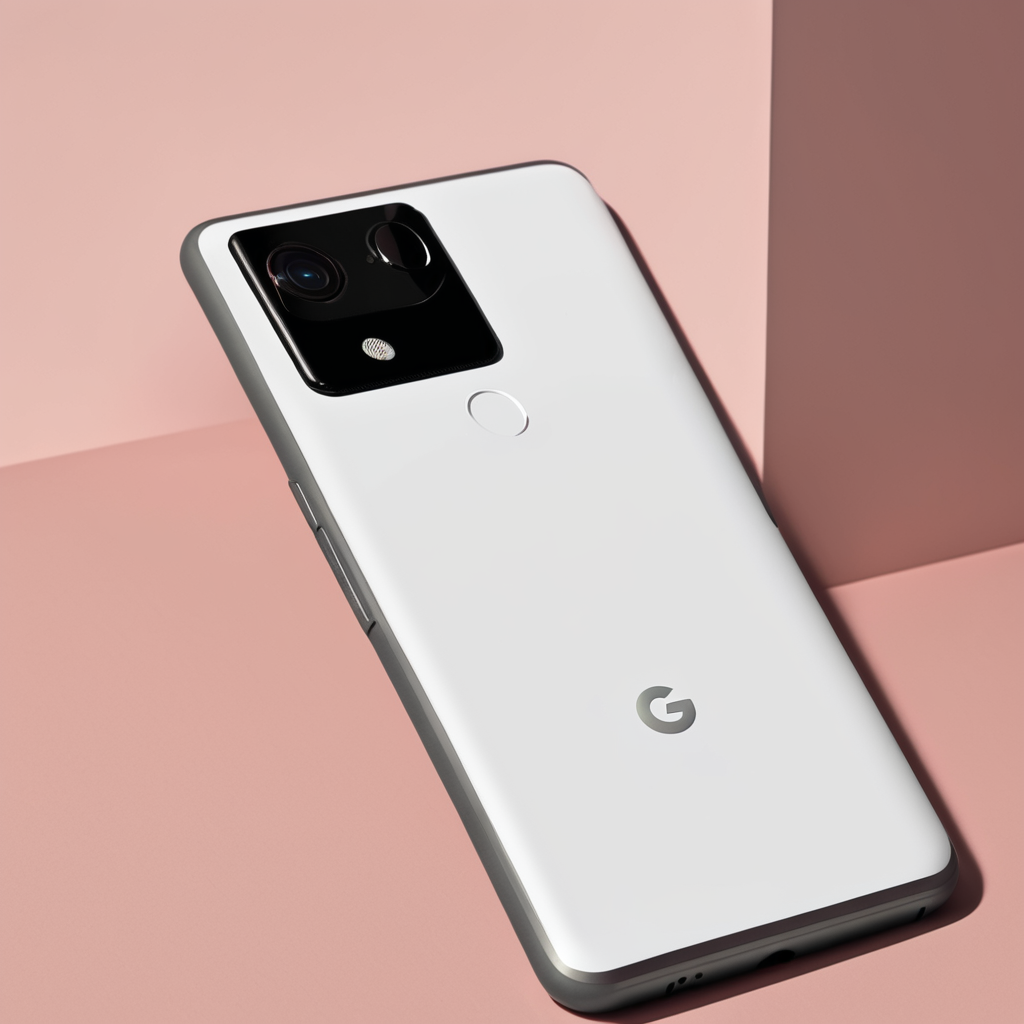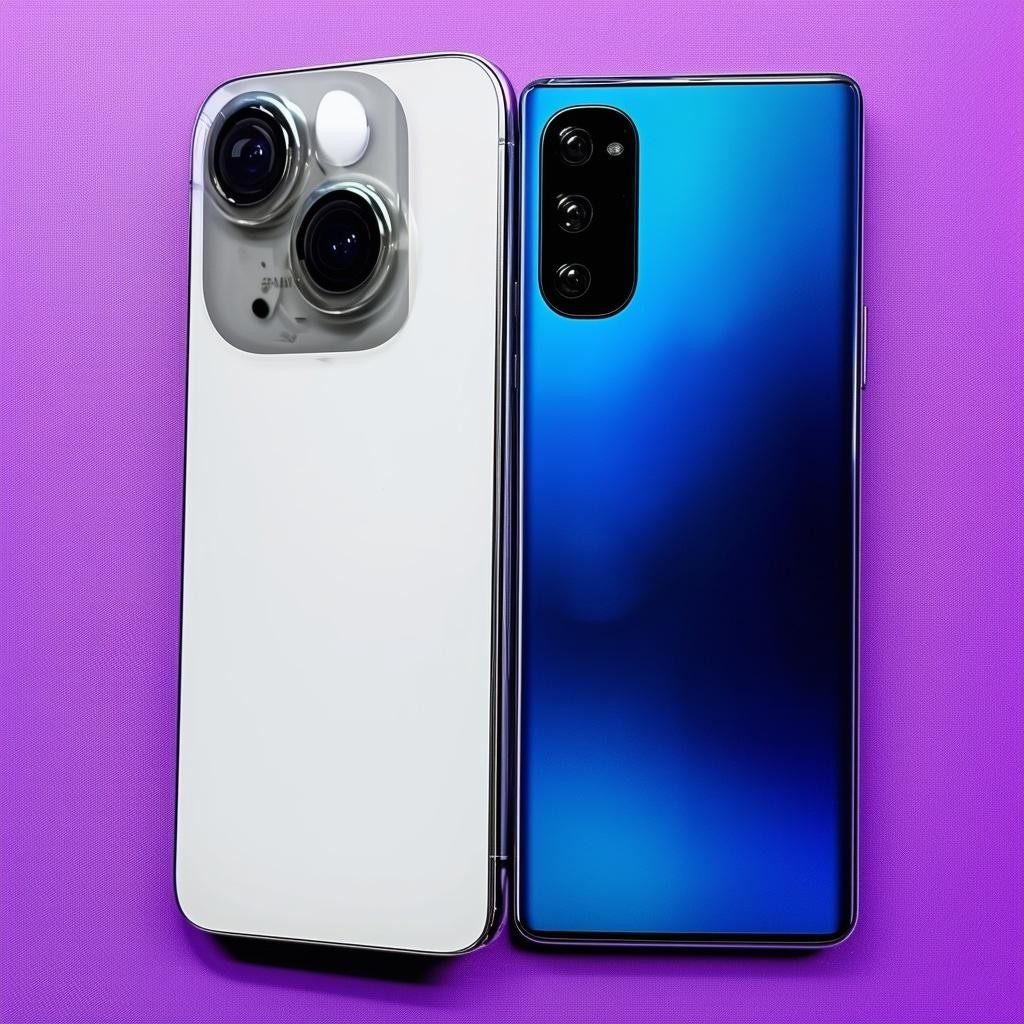In a shocking revelation, the latest leak from an FCC listing has unveiled a significant omission in Samsung's upcoming flagship foldable phone, the Galaxy Z Fold 6. According to the leak, the device may not support the cutting-edge Wi-Fi 7 standard, a feature that has become increasingly common in high-end smartphones. This news comes as a major disappointment, especially considering the phone's premium positioning and the expected hefty price tag.
The FCC certification, spotted by the reliable source Sam Mobile, indicates that both the Galaxy Z Fold 6 and its companion, the Galaxy Z Flip 6, will lack Wi-Fi 7 support. This revelation is particularly surprising given that Samsung's earlier 2023 release, the Galaxy S24 Ultra, proudly boasts Wi-Fi 7 certification.
Wi-Fi 7, the latest iteration of the wireless standard, made its debut in early 2023, promising a game-changing enhancement in network bandwidth. With the potential to offer more than four times the total bandwidth compared to its predecessor, Wi-Fi 6, this new standard has been quickly adopted by the latest routers and flagship devices.
Under the hood, the Galaxy Z Fold 6 is expected to be powered by the powerful Qualcomm Snapdragon 8 Gen 3 chipset, which comes with built-in Wi-Fi 7 support. This chipset is also found in the currently available S24 Ultra, making the absence of Wi-Fi 7 in the Z Fold 6 even more perplexing. Moreover, several other foldable phones in the market, such as the OnePlus Open and the Vivo X Fold3 Pro, have already embraced Wi-Fi 7. Even Google's forthcoming Pixel 8 and Pixel 8 Pro have received Wi-Fi 7 certification, setting a new standard for flagship devices.
The FCC listing reveals that the Galaxy Z Fold 6 will support an array of connectivity options, including 5G, Ultra-wideband, Wi-Fi 802.11 a/b/g/n/ac/6e, NFC, and Bluetooth 5.3. However, the glaring absence of Wi-Fi 7 raises eyebrows and questions about Samsung's decision-making process.
As Samsung's premier foldable device, the Galaxy Z Fold series has always been positioned as a top-tier offering, standing shoulder-to-shoulder with the esteemed Galaxy S24 Ultra. With an anticipated price point of $1,799, matching its predecessor, it seems bizarre for Samsung to omit Wi-Fi 7 connectivity, a feature that has become a staple in other Samsung devices and rival smartphones.
READ ALSO:
Rumors are circulating about the possibility of a Galaxy Z Fold 6 Ultra edition, which could potentially include additional features to set it apart from the standard model. However, this speculation does not provide a satisfactory explanation for why Samsung would choose to remove a crucial connectivity option that is readily available in its other devices.
The Galaxy Z Fold 6 and Galaxy Z Flip 6 are expected to take center stage at the upcoming Galaxy Unpacked event, rumored to be held in July. It is only then that we will have definitive answers regarding the networking support offered by Samsung's most expensive phone.
The omission of Wi-Fi 7 in the Galaxy Z Fold 6 is a perplexing and disappointing move by Samsung, especially considering the phone's premium positioning and the inclusion of this feature in other high-end devices. This decision may have significant implications for the phone's reception and could potentially impact Samsung's reputation in the flagship smartphone market. As we await the official unveiling, it remains to be seen whether Samsung has any surprises up its sleeve with a potential Ultra edition or if this omission will prove to be a costly misstep for the tech giant.
READ ALSO:
What factors could have influenced Samsung's decision to omit Wi-Fi 7 from the Galaxy Z Fold 6?
There could be several factors that influenced Samsung's decision to omit Wi-Fi 7 from the Galaxy Z Fold 6:
-
Cost considerations: Implementing Wi-Fi 7 technology might increase the production costs of the Galaxy Z Fold 6. As a premium device with an already high price point, Samsung may have decided to prioritize other features or keep the price in check by forgoing Wi-Fi 7 support.
-
Supply chain constraints: The availability of Wi-Fi 7 components might be limited, or there could be supply chain issues that make it challenging for Samsung to secure enough Wi-Fi 7 modules for the Galaxy Z Fold 6 production. This could have forced the company to make a strategic decision to omit the feature.
-
Product differentiation: Samsung might be planning to introduce a higher-end model, such as a Galaxy Z Fold 6 Ultra, that could include Wi-Fi 7 support as a distinguishing feature. By omitting Wi-Fi 7 from the standard Galaxy Z Fold 6, Samsung could create a clearer distinction between the models and justify the premium pricing of the Ultra variant.
-
Time-to-market pressures: Incorporating Wi-Fi 7 might require additional time for testing, certification, and optimization. If Samsung is facing time constraints to launch the Galaxy Z Fold 6 and maintain its competitive edge in the foldable phone market, it may have decided to prioritize a timely release over including Wi-Fi 7 support.
-
Battery life and thermal management: Wi-Fi 7 technology could potentially consume more power or generate more heat compared to Wi-Fi 6e. Samsung may have concerns about the impact of Wi-Fi 7 on the Galaxy Z Fold 6's battery life or thermal management, especially considering the device's form factor and the challenges associated with cooling a foldable phone.
-
Market demand and user priorities: Samsung may have conducted market research and concluded that Wi-Fi 7 is not a top priority for its target audience. The company might have determined that other features, such as camera improvements, display enhancements, or battery life, are more important to consumers than Wi-Fi 7 support.
-
Future-proofing considerations: Samsung could be saving Wi-Fi 7 support for future iterations of the Galaxy Z Fold series. By introducing the feature in a later model, Samsung could maintain a competitive advantage and generate more interest in upcoming releases.
These are speculative factors, and the actual reasons behind Samsung's decision may vary. It's important to note that until Samsung officially comments on the matter or releases more information, the reasoning behind the omission of Wi-Fi 7 in the Galaxy Z Fold 6 remains uncertain.






